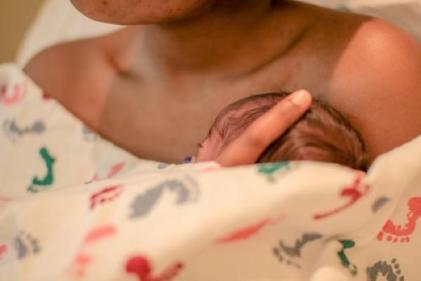For the first few days after your baby is born, your breasts produce small quantities of a fluid called colostrum. Colostrum is exceptionally high in antibodies and is enough for your baby’s first few days. Your breasts will become larger and fuller by the third and fourth days as your mature breast milk comes in. This can make your breasts feel swollen and tight. This feeling is what is known as engorgement and if your baby is feeding successfully, his sucking will relieve any discomfort that you may be experiencing.
Sometimes the breasts become over-full and swollen - in this case, hand-express some milk to soften the area before allowing your baby to suckle. By doing this you will enable your baby to latch on correctly and thus avoid painful nipples. Engorgement only lasts for a few days. Afterwards, your milk supply will adjust naturally to meet the needs of your baby and your breasts will be less full and feel a lot more comfortable.







